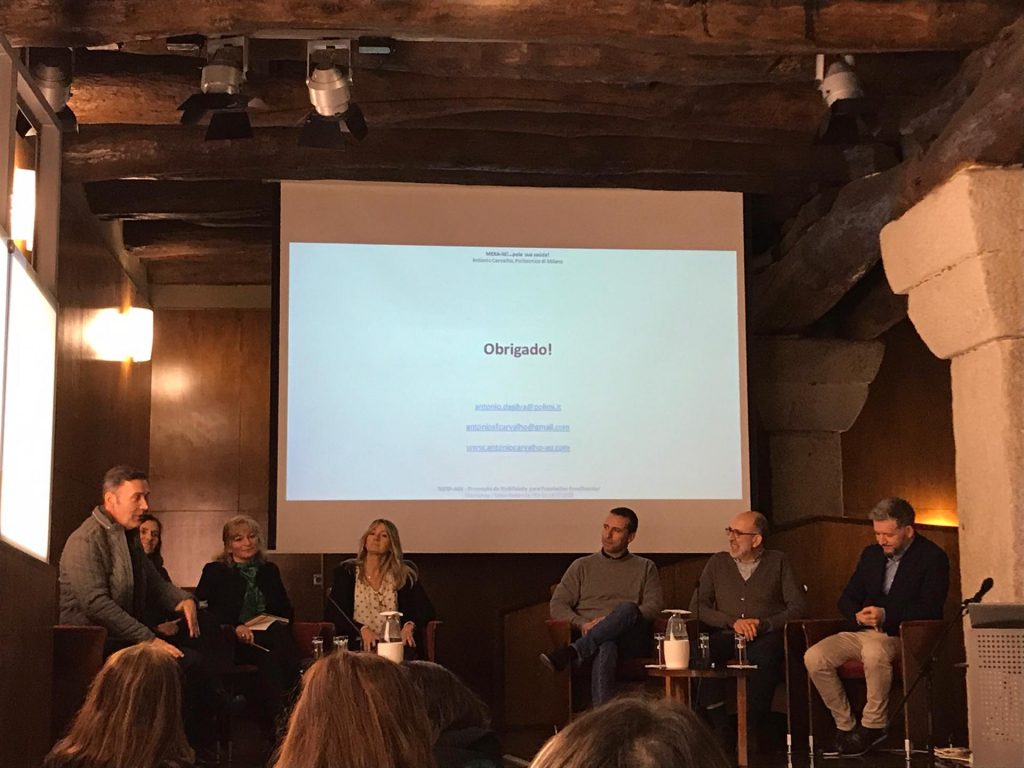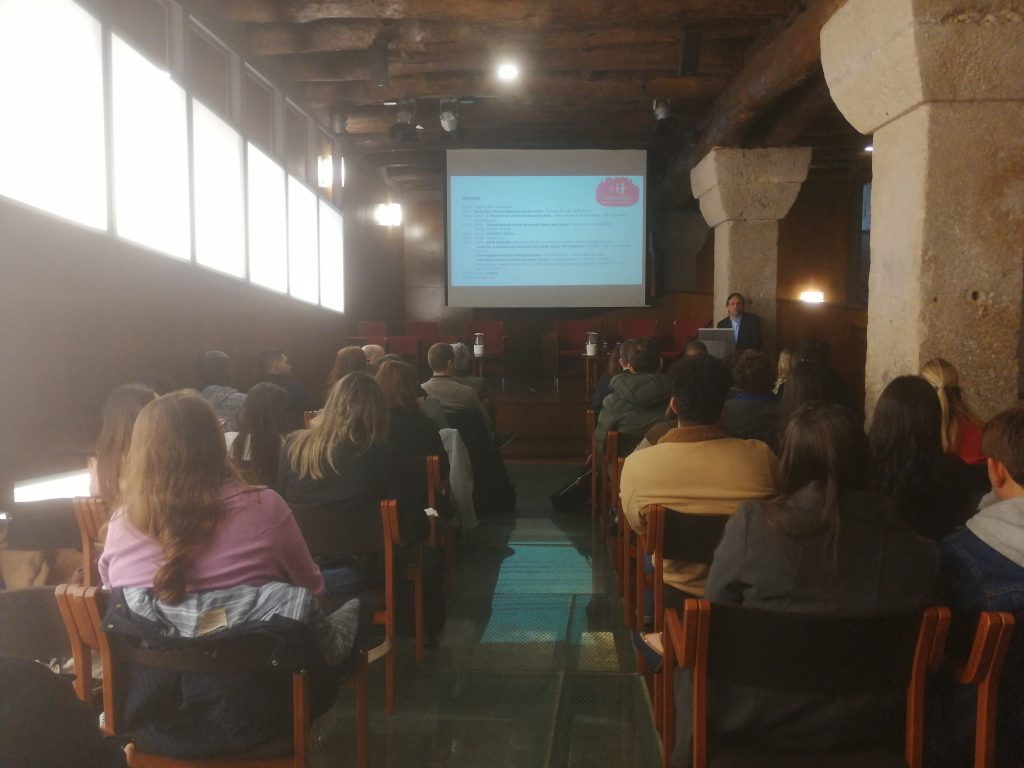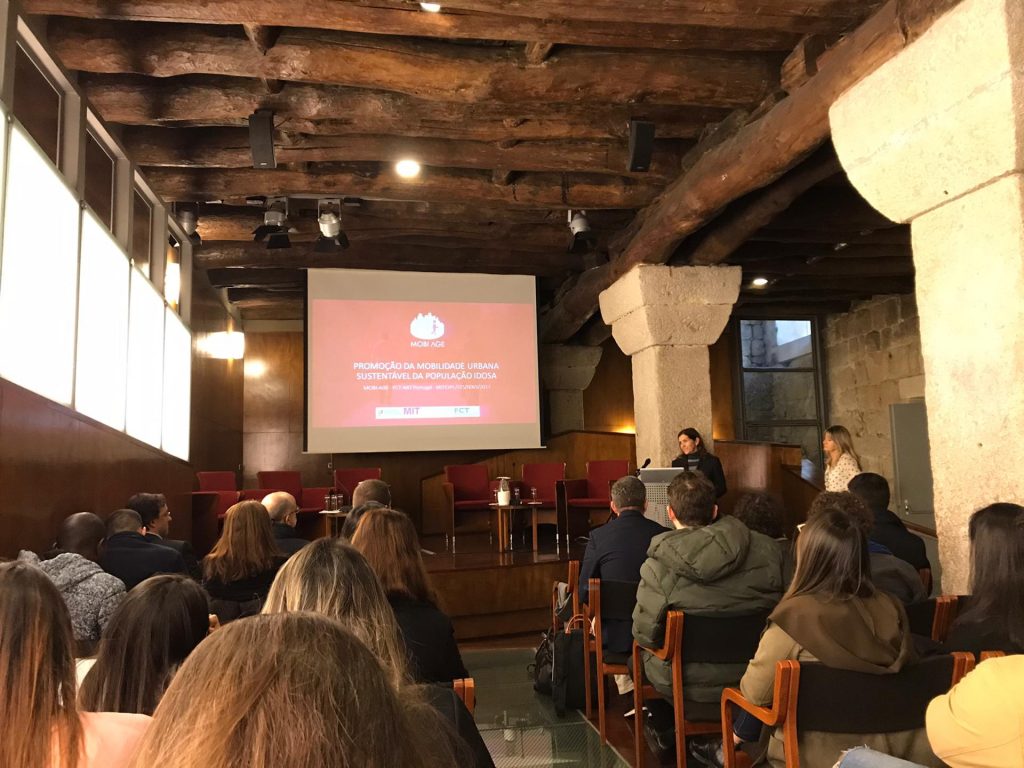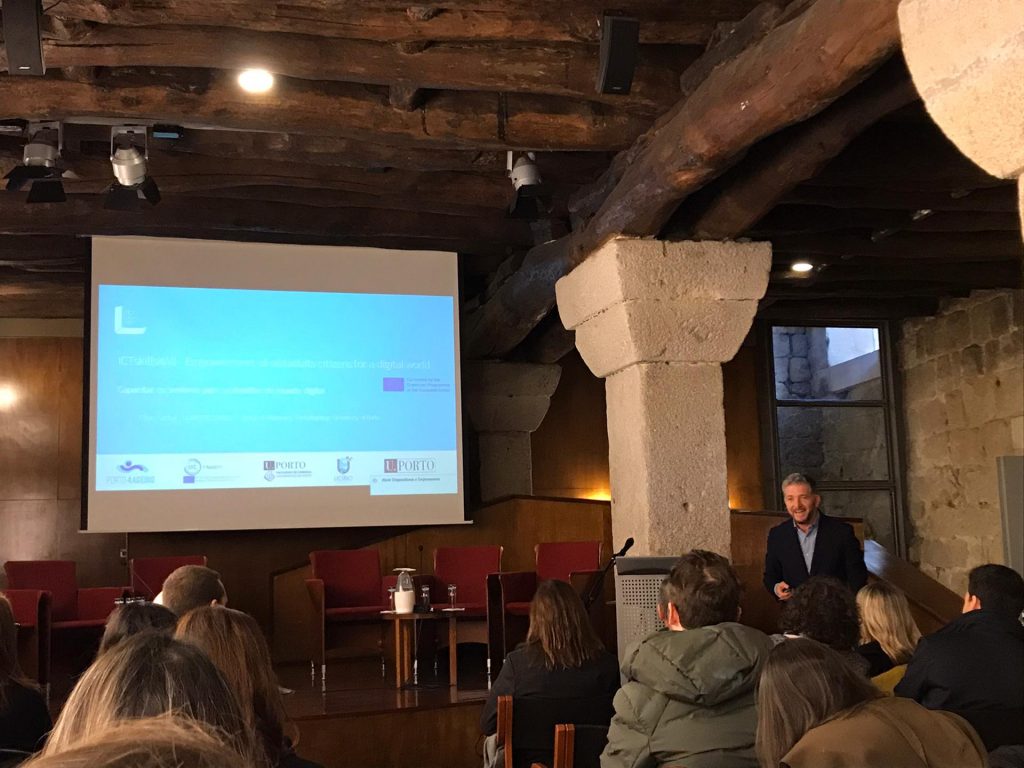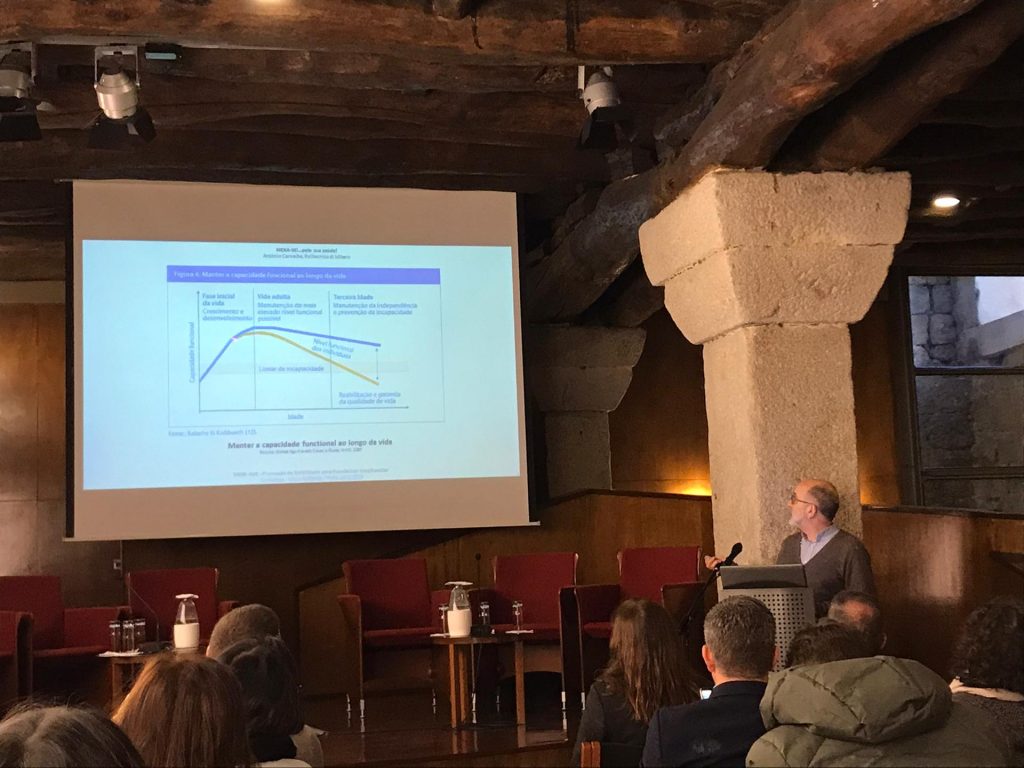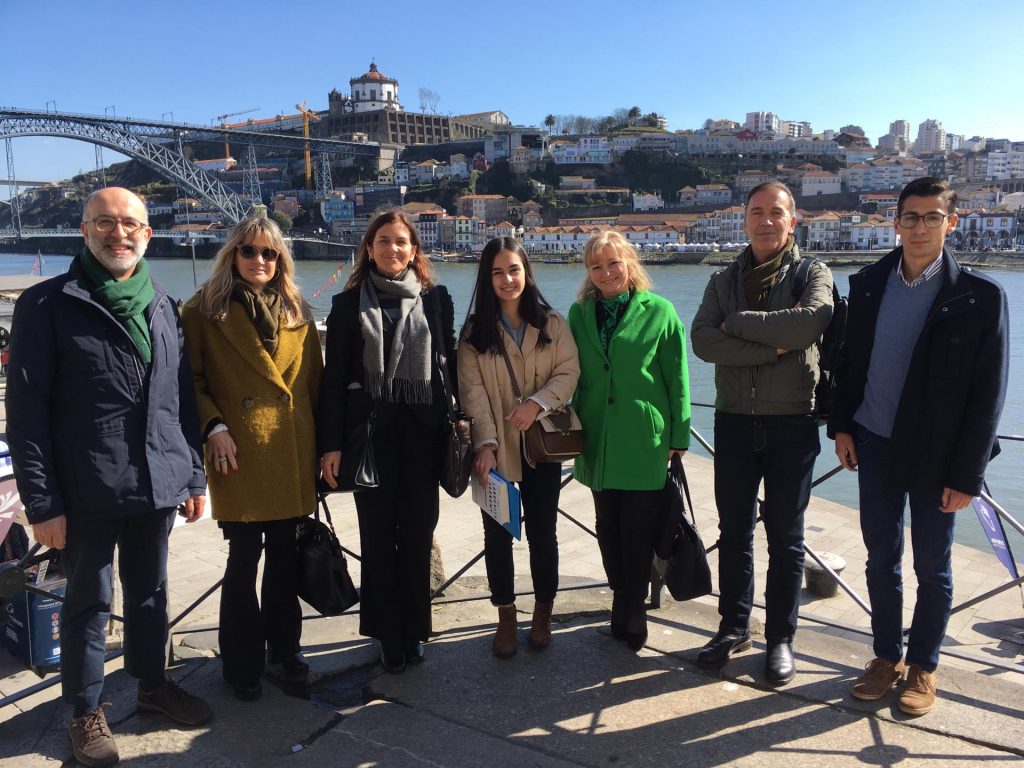On February 18, the MOBI-AGE project team organized a public session at Casa do Infante in the city of Porto where it brought together different entities interested in the theme of cities and aging. It counted on the presence of Mr. Alderman of Urbanism of the Porto City Council (PCC), Architect Pedro Baganha, who presented some of the projects in which PCC is working with a view to improving the quality of the city’s public space. One of the aforementioned projects is called “Rua Direita” and emerged after the members of the PCC found that they received numerous complaints about the quality of the public space, specifically in the oldest part of the city, namely by residents in that area, mostly elderly.
There was a constant interest on the part of the audience, composed mostly of young researchers interested in the theme of aging. After the presentation of the MOBI-AGE project, they praised the work and raised questions, some of which were related to personal experiences related to the aging of members of their families and in which they identified themselves.
Three invited speakers also presented. All very interesting presentations and with different approaches to the theme “city and aging”. It started with the presentation of a member of the “Porto4Ageing” consortium, Elísio Costa, who spoke about methodologies in which he is working to train seniors for the challenges of the digital world. Then Professor Gonçalo Santinha, a professor at the University of Aveiro, spoke about the mobility of institutionalized elderly people. In this project, as in the MOBI-AGE, they interviewed elderly people, in this case inserted in social institutions, and tried to understand the best way to locate these institutions, taking into account, for example, the factors that the elderly value most. Finally, Professor António Carvalho, professor at the Polytechnic of Milan, showed us some of the work he has done, some with students, namely product designs adapted to the needs of the elderly. An example presented was a motorized wheelchair, in which it is not necessary to use the arms, facilitating the mobility.
The balance that the MOBI-AGE team makes of this session is very positive, with numerous contributions to the project in its objective which is to contribute and raise awareness among the entities for the need to adapt the society to this phenomenon of aging.
